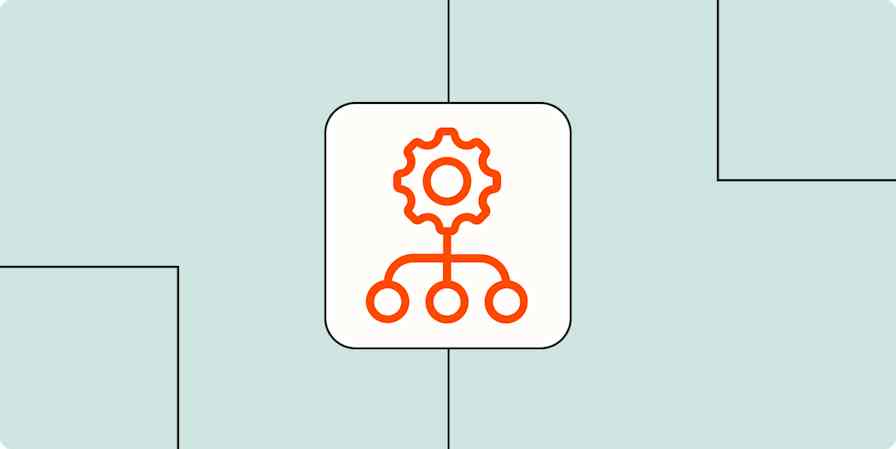Last July, I launched a business. It was a big decision (and risk!), so I wanted to be as prepared as I possibly could. In all the podcasts I listened to and blogs I read, there was a consistent refrain: "You need to set aside time to think big."
If everyone was saying a version of this, it seemed important. But what did it mean? No one was talking about what "thinking big" was, how to do it, or how much time they spend doing it.
So, I crowdsourced the answers. Requesting help on social media and through Help a B2B Writer, I got 45 answers from all kinds of individuals: the owner of a plumbing company, a jeweler, founders of SaaS companies, heads of growth, and digital agency owners.
Collating the data gave me some clarity, and I hope you'll gain some too. In this article, I'll offer the crowdsourced definition I've come up with, share some of the great insights I received, and give you some strategies for thinking big.
What does "thinking big" mean?
Based on the data I've gathered, thinking big means giving yourself the freedom to brainstorm and explore ideas that can catalyze change. That's pretty esoteric, but in practice, it can mean:
Daydreaming about your future
Reflecting on your role in your company's trajectory and where you want both to go
Pondering what it will take to get ahead of the competition or jump to the next career level
Contemplating what activities are actually important in your life
An excuse to be creative
And for many, thinking big means examining the improbable and impossible and questioning whether those labels are accurate. Gauri Manglik, CEO of an institutional fundraising startup, for example, said thinking big helped her successfully redesign her company's website:
"For me, 'big' means having the ability to take a chance on an idea that others may not understand or even see as valuable. My team was excited about the idea of using artificial intelligence to help us develop web content and make it more engaging for users. Others in the company were skeptical, but we took a chance on it."
Kari Fralick, Senior QA Engineering Manager at an FP&A software startup, uses thinking big to "step outside of the knowledge bias boxes" and "look at the world as if everything is possible or new."
Why does thinking big matter?
With so much on our plates, why should we add "thinking big"? From the replies I got, the benefits of thinking big fell into three categories that I'm calling the 3 Ps: purpose, prioritization, and pushing yourself. These 3 Ps help you grow and change.
Purpose
One reason people burn out is that they lose passion for what they do. Thinking big forces you to determine whether your actions truly align with your values.
Some people use thinking big to tap into their creative side, helping them contribute something interesting to their company and their community. Sinoun Chea, CEO of a web services company, says that thinking big gives her a renewed sense of creativity and purpose: "Thinking big helps me see the bigger picture, think outside the box, and come up with innovative ways to solve problems."
And if you don't like what you're doing now, thinking big gives you a chance to think about what would make you excited to get up in the morning.
Prioritization
With the hustle and bustle of the every day, we forget to pause and ask, "Why am I doing this?" Thinking big can get you out of the weeds. "Spending time thinking more strategically ultimately cuts down my to-do list, showing me what activities are busywork and which are actually moving me toward my greater vision," says Brooke Crowe, an MBA Candidate at MIT Sloan School of Management.
Narrowing down your scope can serve as a good hard reset and prioritization tool. Claire Tsukuda, CEO and founder of a tax efficiency platform, told me: "It's easy to get distracted by the latest fire drill or flavor of the week feature request, but remembering the long-term vision cuts through all the noise and helps me prioritize what really matters."
Zeroing in on what's really important also helps you preserve your sanity and health. "Thinking big helps me choose my battles, not get wound up in little things, and keeps me on track with the bigger picture," remarks Kosha Patel, a technical product manager at a health insurance company.
Thinking big can help you realize you need to enforce new boundaries, reassess your goals, or switch up your day-to-day work.
Pushing yourself
Establishing a routine can help you get things done, but it can also make it easy to go through the motions. After a while, that can make you feel stuck. Thinking big can serve as a catalyst for change, reminding you to examine the limits you're placing on yourself.
Nicky Dutta, the founder of a handcrafted jewelry company, told me: "Comfort is a hindrance to progress. As a leader, I need to test the boundaries of my thinking to create something I haven't. I need to challenge conventions to become the finest customer-focused jewelry company."
Others framed thinking big as a way to examine ideas from all sides. As attorney Mark Pierce put it, "Contrarian thinking allows an idea to grow and develop into something more fully formed because you're having to break it down and create solutions as you think it through."
6 steps to thinking big
So, what's the path to the 3 Ps? When synthesizing the input I received, there were six logical steps to thinking big.
1. Find what gives you fresh perspective
Every single person who reached out said they find (or create) a space that calms and inspires them. Many people liked being in nature. Some preferred being in a comfy, quiet spot in their house. Others fed off the energy of a bustling coffee shop.
Strangely, airplanes are my place. For the first three years of my career, I spent most of my time traveling for work. And for some reason, the low hum of the plane, the time-bounded nature of the flight, and the fact that everyone else is sleeping or concentrating on their movie or book still make me feel productive to this day.
I thought I was the only one who felt this way until I read this note from Tatsiana Kirimava, the CEO of a mobile app company:
"A plane ride is a special place for me to get into a creative mindset. The precise duration of the flight allows me to focus on the task at hand. This serene environment puts me in greater contact with myself and allows me to think clearly. I then unload all thoughts on paper and view strategy choices through multiple lenses (viability, ROI, benefits for the team, etc.)"
To find your space, try to identify a time when thoughts and ideas flowed freely. Where were you?
2. Do something "passively active" to ease into your thinking
It's kind of an oxymoron, but you've probably done this without knowing it. It's an activity that gets you into a mindful, creative mood—a good flow. For some people, this may be going for a walk or run. For others, it may be gardening, sketching, or starting a puzzle.
Athina Zisi, Chief Operations Officer at an online gaming company, says knitting is what does it for her: "To my colleagues' amusement, I like to knit for a bit while I think. Something about the repetitive motion helps me relax and let my mind wander."
And there's science to back this up. Studies have shown that these kinds of activities pump more blood to the brain, promote connections between brain cells, and increase the volume of your hippocampus. Other psychologists speculate that "passively active" activities spike our creativity because they only hold a little of our attention, allowing our minds to drift and observe.
3. Find time to do it
Another commonality in responses was the fact that people make a point to think big.
Some block off their calendar at a specific time each week, month, or quarter, but you don't have to adopt a specific recurring cadence. Logan Mallory, VP of Marketing at an employee engagement software company, shared: "Instead of trying to schedule inspiration, I make sure to leave room in my schedule so that I can stop and take a break when those 'aha' moments strike."
4. Use good prompts
You don't just sit down and say, "Ok, I'm thinking big now." You have to coax the big thinking out of you with prompts. Questions don't have to be super theoretical—this isn't philosophy 101. But they should be open-ended enough to give your mind room to explore.
Here are some work-related examples:
How could we fundamentally change the industry we build for?
If money weren't a concern, what would we do differently?
Who would we hire?
What would we build?
How can we expand our economic moat?
What is the bigger arc of our work?
Is there a better way to do [insert process here]?
And here are some personal examples:
Will this matter to me next week?
What do I want my legacy to be?
What are my personal goals, and how can my business help me achieve them?
How can I make a positive impact on the world through my business?
How can I scale my business while still maintaining a healthy work-life balance?
5. Let yourself daydream
You know that crazy idea you keep dismissing? Now is the time to entertain it. Kristen L., a paralegal, advises: "Give your ideas ample space to go wild. Engage in things that are outside your comfort zone. That's where all the juicy ideas come to me."
Don't lose sight of your ideas, either. Keep a journal or a running Google Doc to jot down notes and reexamine them later. Sara Bodner, a digital content manager, writes down everything she thinks about during her walks—but doesn't limit herself to text: "Normally, I end up drawing a lot of mind maps. I've found they're my favorite way to visually represent my thoughts and how they connect to each other on paper."
One day, you might revisit your ideas, and they won't seem so impossible anymore.
6. Remember you can't have output without input
A lot of the big ideas we have come from the information we consume. But with the busy lives we lead, we have little time to read or listen. So be selective about the content you're taking in and adamant about making time to do it.
Natalie Marcotullio, Head of Growth and Operations at a B2B SaaS software company, says she doesn't block off creative time—she blocks off input time: "Input time may be a webinar, listening to sales calls, listening to a podcast, networking, etc. I try to do around 5 – 10 hours of input time a week. My creative ideas usually stem from interesting learnings or insights in this input time."
Putting thinking big into practice
Reviewing these amazing responses helped me realize why people emphasized thinking big so much and how to make it a key part of my business strategy. I can already tell that tackling number three will be the hardest for me. To hold myself accountable, I'm committing to thinking big every last Friday of the month—unless I get on a plane first.
I'll be documenting my journey on LinkedIn, and I hope you'll share your progress, too.
To get a head start, check out all the question prompts I got below.
Business focus
How does this decision fit into our bigger strategic vision?
Is anyone else on the market doing anything similar?
How can we stand out from what's already out there?
How will this decision affect our brand and reputation?
What are we working toward?
What is the bigger arc of our work?
Is what we're currently doing in alignment with this greater mission?
What will take us to the next level?
How can we expand our economic moat?
What is something our competitors have that we don't? How would we build a better version of it?
How could we fundamentally change the industry we build for?
What is wrong with the industry today?
If we could fix a problem, no matter how impossible it may seem today, how might we do that?
If money weren't a concern, what would we do differently? Who would we hire? What would we build?
What have we achieved so far?
How can my team be better?
In 5 years, where will the company be?
What new and innovative ideas can I come up with?
How can I stay ahead of the competition?
What opportunities am I missing out on?
Is there a better way to do this?
What would make my business stand out from competitors?
How can I stay ahead of industry trends? What trends should be avoided?
Personal reset / philosophical
Will this matter to me next week?
Is this helping me get closer to my overall vision for my life?
What do I want my legacy to be?
How am I making an impact that fuels me, and how do I do more of that?
What is my purpose?
What can I do better?
What are my personal goals, and how can my business help me achieve them?
How can I scale my business while still maintaining a healthy work-life balance?
How can I make a positive impact on the world through my business?
Related reading:










